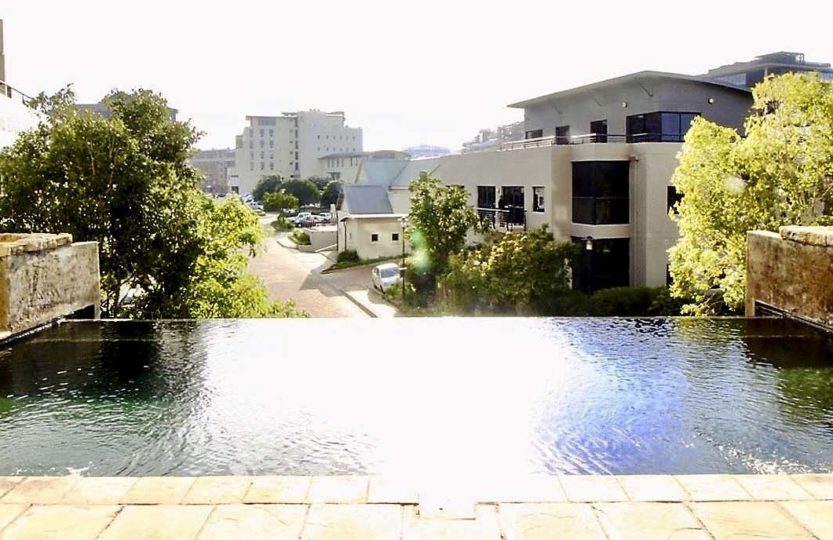Business is booming, and it is not just happening in the traditional central business district of Cape Town’s city centre.
Business is booming, and it is not just happening in the traditional central business district of Cape Town’s city centre. It can be seen in the emerging economic nodes of Claremont, Tygervalley Waterfront and Century City where mixed-use developments have created investment and employment opportunities. “And the knock-on effect has been a significant boost for the housing markets surrounding these flourishing business hubs,” says Sandra Gordon, Pam Golding Properties research analyst.
“With growing congestion in Cape Town, as well as rising utility and maintenance costs, more homeowners are opting for a lock-up-and-go lifestyle in a live-work-play business node.”
Gordon says a vibrant growth node is typically characterised by high levels of economic activity and growth in employment opportunities, which in turn stimulates the surrounding housing markets. One of these growth nodes is the Claremont CBD, which has seen a flurry of new, predominantly mixed-use developments.
While luxury residential units are increasingly located on the periphery of the Claremont CBD, a growing number of mixed use developments are creating residential units for the area’s growing student population. This is in response to the expansion of UCT’s accommodation footprint in both directions to now include the area from Rondebosch towards Claremont and Kenilworth, and not just Rondebosch towards Observatory.
Claremont CBD’s and surrounding suburbs are flourishing because of the easy access to public transport, convenient location to popular schools and the stability of Cavendish Square as a core business node, says Gordon. In the past two years, increased traffic congestion has seen an acceleration in the decentralisation of business nodes and more people are opting for well-located properties that reduce the lengthy daily commute to work and school. Claremont, with its prime location, has therefore attracted more businesses to its CBD, and this has made the surrounding property more appealing. There are, for example, more than 12 financial services companies in close proximity. Four new developments currently under construction will bring additional retail and office space into the area. “The fact that Claremont offers both a business hub, access to retail and entertainment amenities and easy access to several well-established schools as well as UCT, goes some way to explaining the continued growth in demand for properties in the suburb,” says Gordon.
She adds that upper Claremont has become home to some of the most expensive residential property in the Southern Suburbs on a rand/square meter basis. Developments such Cadogan Place cater to the growing need for secure, bespoke estate living in this sought-after suburb. Sectional title units are also in demand, driven by the willingness of a growing number of homeowners to sacrifice space for security, reduced maintenance costs and lower utility bills.
Similarly, The Tygervalley Waterfront property market has shown steady price growth in recent years, with the average sales price of apartments at R1.3 million thus far this year. Sectional title prices have shown a 74.8% growth over the past five years. This property market is especially popular with younger buyers, many of whom are working in the area and want to combine convenience with a waterfront lifestyle. Almost 60% of recent buyers are between the ages of 18 and 35, with the typical first-time buyer investing about R950 000. That being said, Borg says mature buyers also consider the Tygervalley Waterfront as an option when they downscale due to their changing needs. Many are not yet ready for a retirement village, yet they want to enjoy the convenience and security of lock-up-and-go living. The apartments here are within walking distance of the Tygervalley Shopping Centre and surrounding office blocks.
“With so many financial companies’ offices in the area, Tygervalley Waterfront is the ideal choice for young professionals wanting to live close to work, and gain a foothold on the property market ladder,” says Annien Borg, Pam Golding Properties managing director for the Boland and Overberg.
Pam Golding Properties currently has three-bedroom apartments listed for R1.99 million. “The demand for accommodation close to work means that the buy-to-let market is also very strong, and rental apartments are highly sought after.” The monthly rental income for a two-bedroom home ranges from R8 000 to R10 000 and short-term, furnished lets are about R350 a day, says Borg.
Construction on the Tygervalley Waterfront started in 2002, and it has since grown into a vibrant node with a 50/50 split of residential and commercial properties. “The area offers a contemporary, urban lifestyle akin to the inner-city living one would expect from Cape Town’s CBD, for example. It is also conveniently located near to the N1, and the Winelands,” adds Borg. Students attending Stellenbosch University’s Tygervalley satellite campus also enjoy the convenience of living at the Tygervalley Waterfront. The neighbouring Galleria development, will further invigorate the expansion of this node in Cape Town’s northern suburbs.
Century City on the N1 is the quintessential live-work-play precinct with more than 60 000 people living and working in the area. This “city within a city” has various attractions, including parks, accessible public transport, shopping centres, schools and recreational activities. Already regarded as one of the Cape’s fastest growing mixed-use areas, the confirmation by the Rabie Group that the Ratanga Junction development will provide even more residential units, a retirement offering, a hotel and restaurant, as well as more office space, will further enhance this node’s appeal.
There has been a capital appreciation on residential property of 134% in the first 10 years of the development and property prices have doubled in the past five years. Given the demand for property in this area, and the shortage of available land to expand, property prices are likely to remain competitive. The presence of several corporate headquarters in Century City means there is always a strong demand for rental accommodation as well. Paul da Silva, Pam Golding Properties agent for Century City, says the precinct offers a range of accommodation for the full life-cycle, from units for first-time buyers to lifestyle, retirement options. “Century City is ideally located on the N1, close to a premium shopping centre and many corporate offices, but without the overcrowding and congestion one would experience in Cape Town’s CBD.”
“The net influx of young South Africans to the country’s major metro areas, coupled with the semigration of older, more affluent homeowners to the Western Cape, suggests that housing markets in growth nodes across the region will continue to flourish,” notes Gordon.

